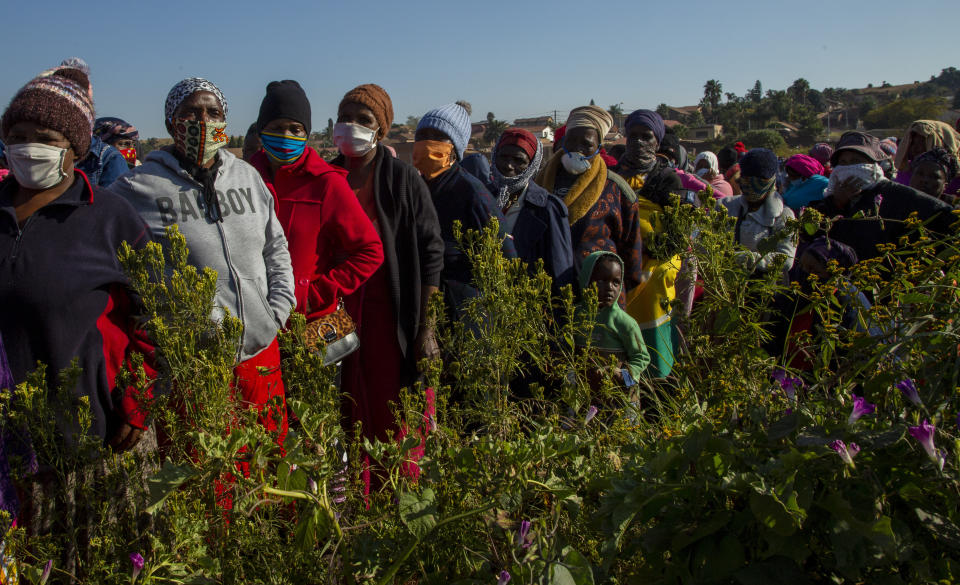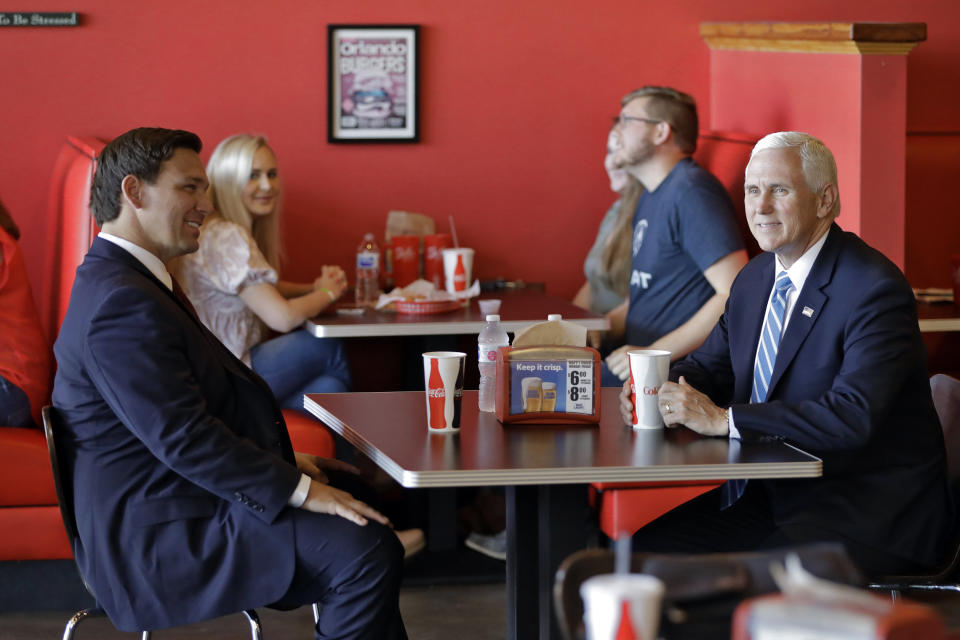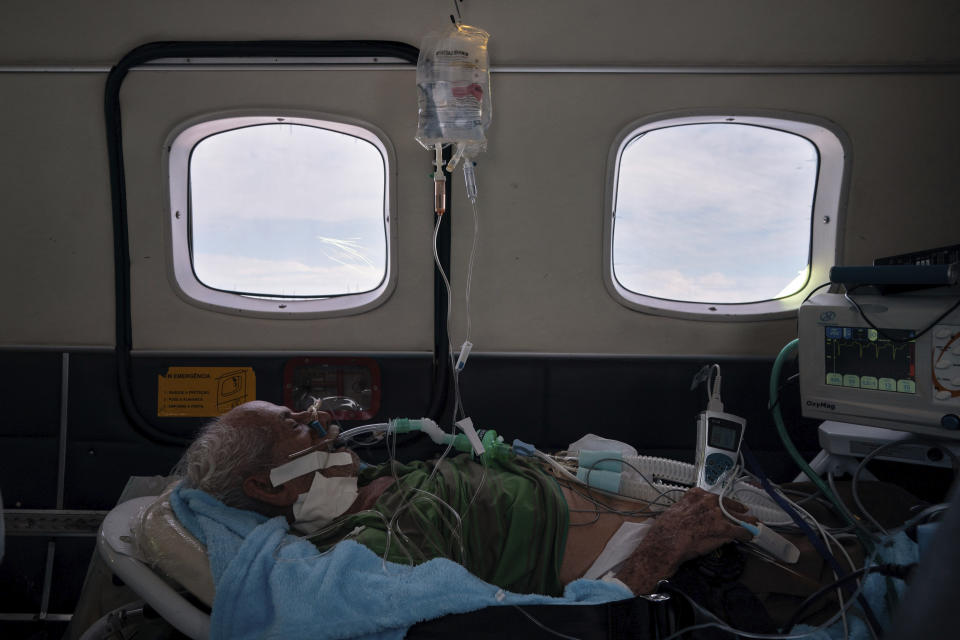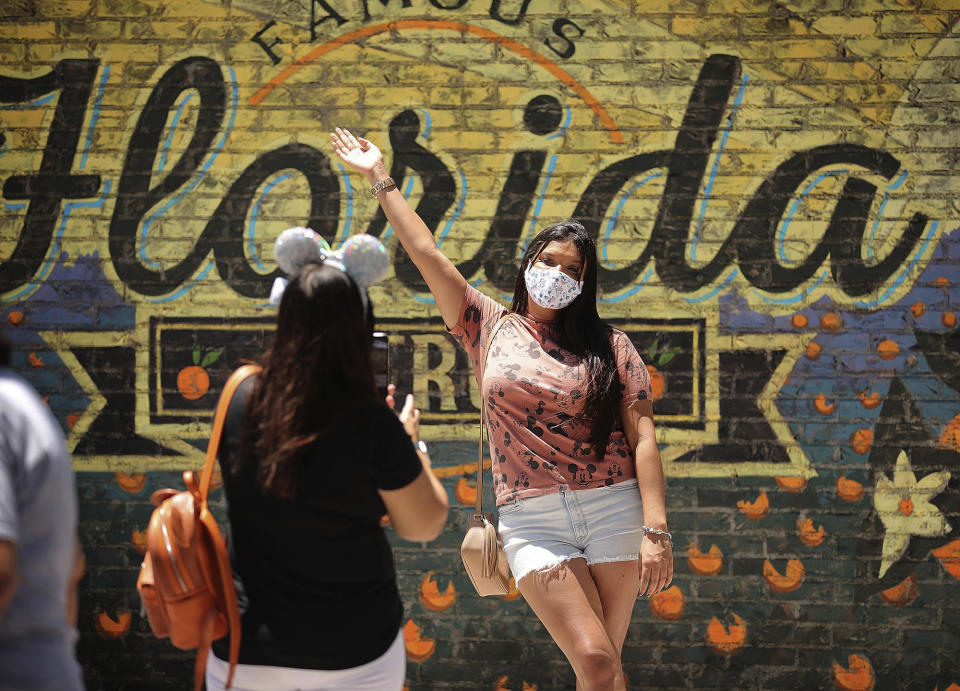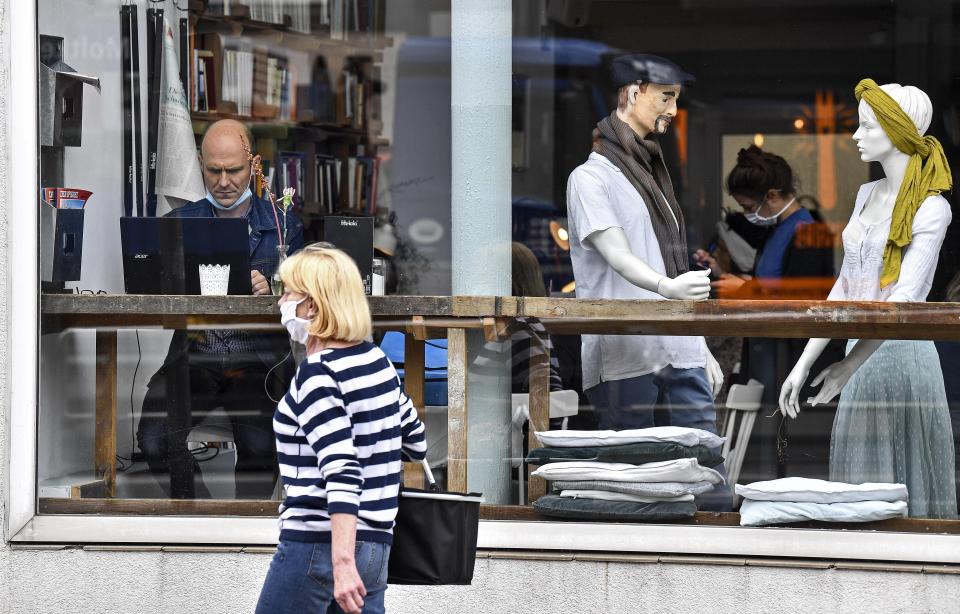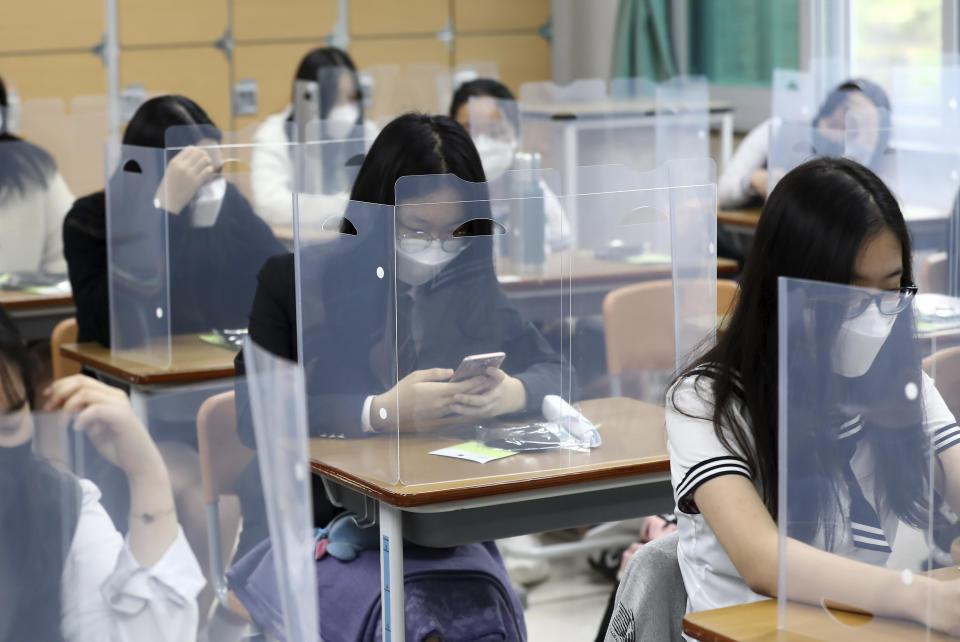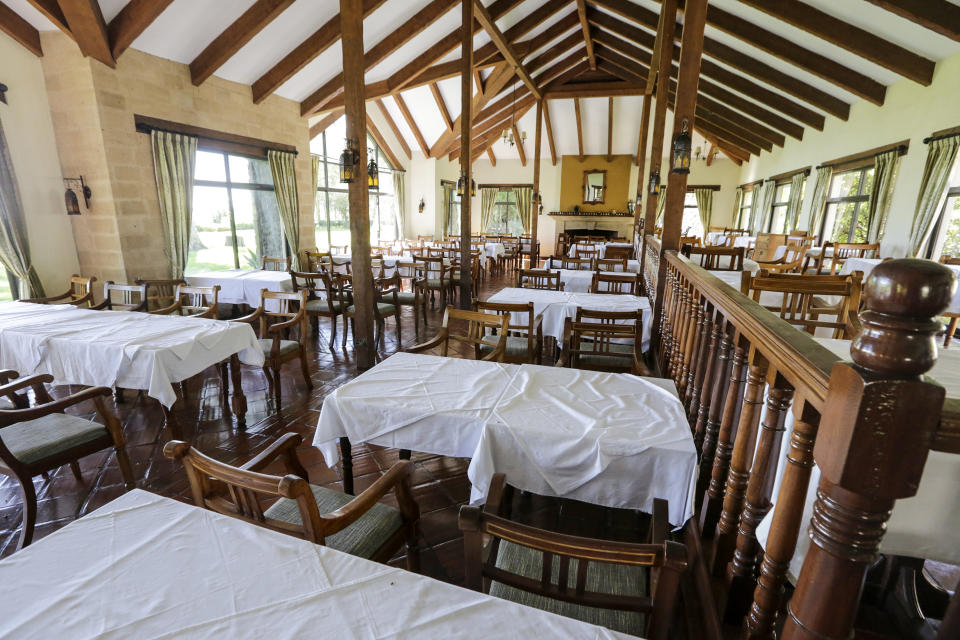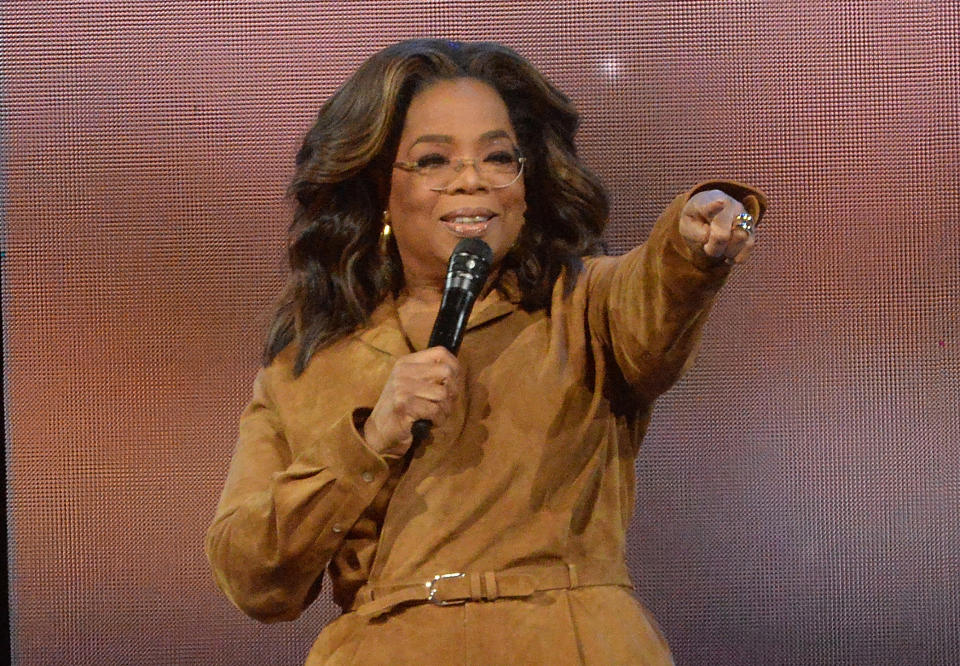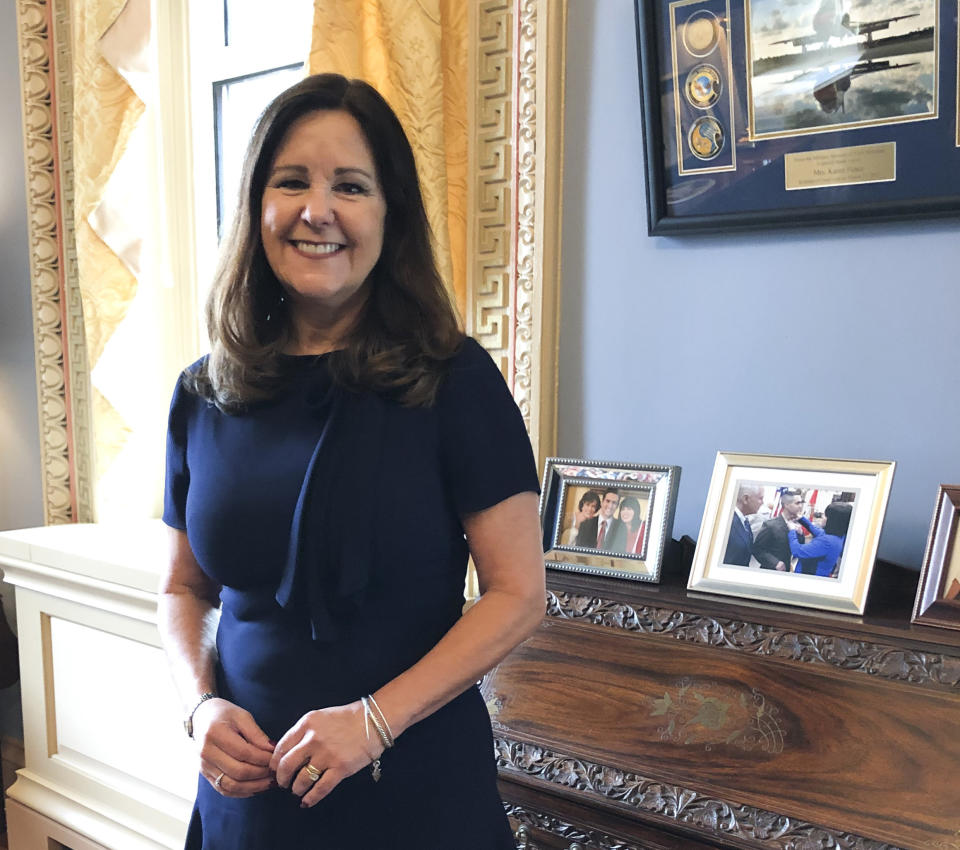What you need to know today about the virus outbreak
As the U.S. and other countries loosen their coronavirus restrictions, it’s back to business, but not business as usual. The gradual relaxing of stay-at-home orders imposed to slow the spread of the coronavirus has come with new restrictions on just about everything: shopping, going to the beach, religious services or a day at school.
In Connecticut, restaurants are reopening with outdoor-only dining and tables 6 feet apart. In Beverly Hills, California, the rich and glamorous are doing their shopping from the curb along Rodeo Drive. And preschools around the U.S. plan to turn social distancing into an arts-and-crafts project by teaching kids how to “create their own space” with yarn and masking tape. In Italy, once-packed restaurants and cafes are facing a huge financial hit as they reopen with strict social distancing rules.
In Fredericksburg, Virginia, one restaurant that recently reopened its patio has taken an extra step to reassure diners — it's taking staff members’ temperatures at the start of their shifts and posting the results for patrons to see.
Here are some of AP’s top stories Wednesday on the world’s coronavirus pandemic. Follow APNews.com/VirusOutbreak for updates through the day and APNews.com/UnderstandingtheOutbreak for stories explaining some of its complexities.
WHAT’S HAPPENING TODAY:
— Strong concern about a second wave of coronavirus infections is reinforcing widespread opposition among Americans to reopening public places, a new poll finds, even as many state leaders step up efforts to return to life before the pandemic. Support for public health restrictions imposed to control the virus’ spread is no longer overwhelming — it's been eroded over the past month by a widening partisan divide.
— High schools nationwide have canceled or postponed traditional graduation ceremonies to avoid worsening the spread of the coronavirus, but some are going ahead with full-fledged springtime commencement exercises as usual, with tweaks to account for health concerns.
— President Donald Trump says he wants to hold up coronavirus funding for Michigan and Nevada because the two battleground states are trying to make it easier for people to vote during the outbreak. Trump erroneously said Michigan was sending absentee ballots to all its voters, when the state actually announced it will be sending applications for the absentee ballots. Nevada actually sent ballots to voters for its June 9 primary, a move by the Republican secretary of state that was cleared by a federal judge.
— Before COVID-19 killed thousands of nursing home residents, about 4 in 10 homes inspected were cited for infection control problems, according to a government watchdog report Wednesday that finds a “persistent” pattern of lapses. In light of the pandemic, seemingly minor cutting of corners such as an employee caring for residents while battling a cold has taken on new significance.
— Homicides in Mexico dropped only slightly in April despite widespread lockdowns and social distancing measures for the coronavirus outbreak, suggesting the pandemic has done little to stem drug gang violence.
— Brazil President Jair Bolsonaro unveiled rules expanding the prescription of chloroquine, the predecessor of an anti-malaria drug promoted by U.S. President Donald Trump, for coronavirus patients despite no proof that it is effective either in preventing or treating the virus. Chloroquine was already being used in Brazil for COVID-19 patients who are hospitalized in serious condition, and under the new regulations, it can be given to people with lesser symptoms.
___
WHAT YOU NEED TO KNOW:
For most people, the coronavirus causes mild or moderate symptoms, such as fever and cough that clear up in two to three weeks. For some, especially older adults and people with existing health problems, it can cause more severe illness, including pneumonia and death. The vast majority of people recover.
Here are the symptoms of the virus compared with the common flu.
One of the best ways to prevent spread of the virus is washing your hands with soap and water. The U.S. Centers for Disease Control and Prevention recommends first washing with warm or cold water and then lathering soap for 20 seconds to get it on the backs of hands, between fingers and under fingernails before rinsing off.
You should wash your phone, too. Here’s how.
TRACKING THE VIRUS: Drill down and zoom in at the individual county level, and you can access numbers that will show you the situation where you are, and where loved ones or people you’re worried about live.
___
ONE NUMBER:
— 693: Indonesia has recorded its highest single-day rise in COVID-19 cases as the government is preparing for a “new normal” by July. A health ministry official says infections rose by 693 cases, raising the total to more than 19,000. Some Indonesians believe there's little commitment from the government and citizens to fight the virus. The country has carried out about 154,000 tests among the population of about 270 million.
IN OTHER NEWS:
— OPRAH'S OFFERINGS: Oprah Winfrey is donating money from her $12 million coronavirus relief fund to the cities she’s called home. Her Oprah Winfrey Charitable Foundation is providing grants to organizations dedicated to helping underserved communities in Chicago; Baltimore; Nashville, Tennessee; Milwaukee; and Kosciusko, Mississippi, where she was born.
— PENCE PROMOTES PARKS: Karen Pence, wife of Vice President Mike Pence, visited Great Smoky Mountains National Park in Tennessee to talk about the mental health benefits of spending time outdoors. The visit that included Deputy Secretary of Interior Katharine MacGregor was meant to highlight Saturday's reopening of all national park trails.
___
Follow AP coverage of the virus outbreak at https://apnews.com/VirusOutbreak and https://apnews.com/UnderstandingtheOutbreak
